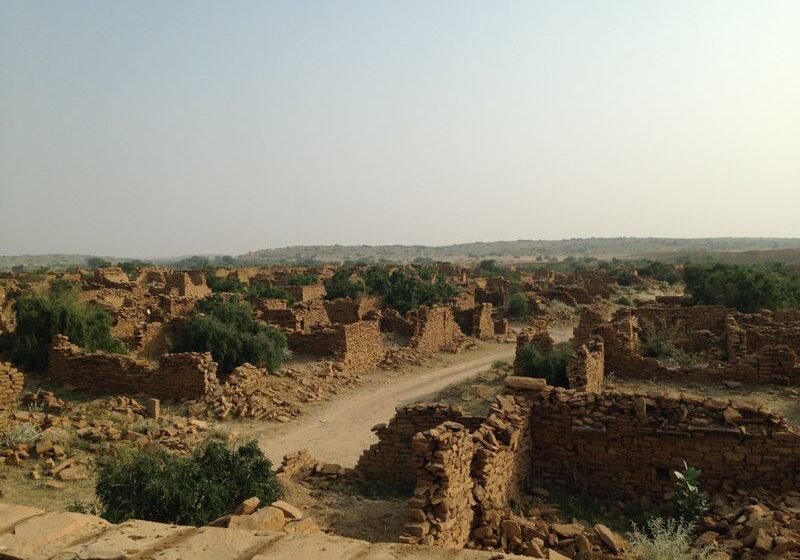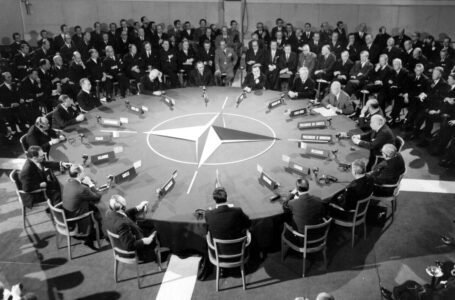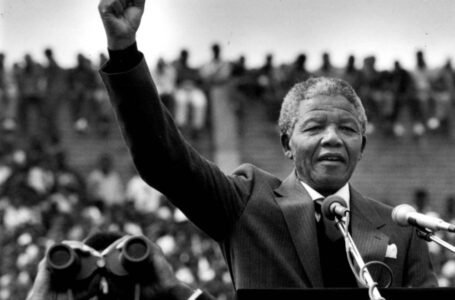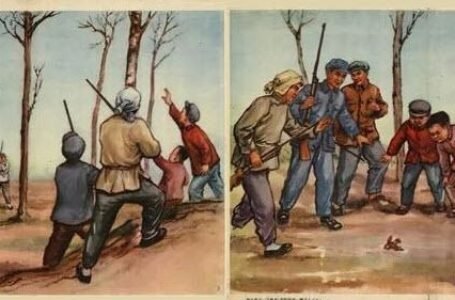The Kuldhara Stir: A Silent Departure That Still Echoes

-Hemangi maheshwari
Some stories don’t start with noise. They rest quietly in the background, passed down through whispers. Kuldhara is one such place. It’s a deserted village near Jaisalmer, Rajasthan. People call it haunted. But it’s not about ghosts. It’s about people who once lived, chose to leave, and never came back.
Kuldhara used to be a thriving village. It was home to the Paliwal Brahmins. They weren’t just any community. They were respected for their knowledge, especially in water conservation. Living in the harsh desert, they found smart ways to grow crops and build lives. Their irrigation systems worked even in dry months. They managed to survive,and even do well. They thrived, built beautiful homes, temples, and had a structured life rooted in tradition, culture, and intelligence.
But success brings attention. Not always the good kind. In the early 1800s, Salim Singh, the Diwan of Jaisalmer, turned his eyes toward Kuldhara. He wasn’t known for kindness. He wanted to marry the daughter of the village chief. But it wasn’t love. It was pressure. The villagers knew what that meant. Refuse, and there would be punishment. Agree, and they’d lose their pride.
They didn’t pick either. They walked away.
One night, they left everything behind. Not just one village, some say 80 others joined in. They didn’t pack in a hurry. Pots sat half-filled. Doors stayed open. It looked like they had vanished into thin air. No signs of violence. Just absence. There were no burn marks, no signs of struggle. Just silence.
And since that night, no one has lived there again. Locals believe the villagers cursed the land before they left. Some tried to rebuild. But none stayed. The structures still stand,weathered, but strong. The desert wind moves through empty lanes. But nothing else does. Even today, efforts to renovate or occupy the land seem to falter, as if the past resists being rewritten.
Why did they really go? Stories vary. Some talk about taxes. Others mention drought. A few say the people were just tired. Tired of being exploited, tired of being threatened, tired of being unheard. The real reason remains a mystery. And maybe that’s why people are still drawn to Kuldhara.
There was no open fight. No bloodshed. No protest banners. But their choice was loud. They resisted, not with violence, but by walking away. That’s not easy. Leaving behind homes, fields, memories, it takes strength. Real strength. The kind that doesn’t need shouting. Just quiet determination.
The ruins speak, in their own way. Narrow alleys. Broken steps. Cracked temples. All hint at the life once lived there. If you walk through, you’ll feel it. Not fear, but a deep stillness. As if the land is holding a secret. As if time took a breath and held it there. Even stray animals don’t linger.
Many who visit say the same thing. A strange calm. A weight in the air. Some talk of ghostly touches or sudden winds. But maybe it’s not about spirits. Maybe it’s about the weight of choice. A whole community deciding to step away from injustice. That emotion stays. It lingers, almost respectfully.
Where did they go? Nobody knows. No records. No trails. They may have blended into nearby towns. Changed names. Started fresh. Or maybe they didn’t want to be found. Perhaps they wanted their silence to speak louder than anything else. Maybe they wanted to exist outside of history books.
This story isn’t about loss. It’s about saying no. It’s about choosing dignity over fear. Most history books talk about heroes with swords. But here, the power came from refusal. From quiet resistance. That takes a different kind of courage. And it lasts longer.
That’s why Kuldhara still matters. It doesn’t shout. It whispers. But the message is strong. Bravery isn’t always loud. Sometimes, it’s silent. Sometimes, it’s the act of leaving. And that can echo louder than a thousand battles.
People still come. Tourists. Historians. Curious wanderers. Some want ghost stories. Others want to understand what really happened. But all of them leave with something, an impression, a question, a sense of awe. A moment that stays with them long after they leave.
Kuldhara doesn’t give clear answers. But maybe that’s not the point. Maybe its silence is the answer. A reminder that history isn’t always written in battles. Sometimes, it’s in choices. It’s in walks taken under moonlight, away from everything familiar.
What would you do if someone threatened your way of life? Would you stay and fight? Or walk away with your head held high? Would you risk becoming a forgotten footnote, or leave behind a story that still unsettles hearts two centuries later?
The people of Kuldhara chose the second. And their story, simple, quiet, and powerful, still stands. Not as ruins. But as a memory of strength, pride, and the courage to leave. Their refusal to give in has turned into a legacy that questions the meaning of power itself.
Sometimes, all it takes is a quiet goodbye to shake the world. Kuldhara did just that. And it hasn’t stopped echoing since.
Even as we move forward, driven by progress and speed, perhaps we should pause. Walk the dusty lanes of places like Kuldhara. Listen to the silence. Feel what it holds. Not fear, but defiance, pain, unity. A forgotten protest that still speaks.
Maybe the people who left Kuldhara didn’t just vanish. Maybe they live in every act of quiet resistance today. When someone chooses dignity over submission, they carry forward that spirit. Kuldhara isn’t just a ruin; it’s a reminder that silence can be the strongest voice.
There’s more to this village than just stones and wind. There’s a legacy stitched into its soil. And when you stand there, surrounded by emptiness, you don’t just see abandonment, you see choice. Courage. The human will to choose freedom, even when it means disappearing. That’s something we still need to learn from.
Centuries have passed, but the quiet walkout of Kuldhara continues to stir minds. It’s a quiet protest turned into eternal presence. Not every revolution needs a battlefield. Some happen when an entire community chooses to walk away, and lets their silence do the talking.


